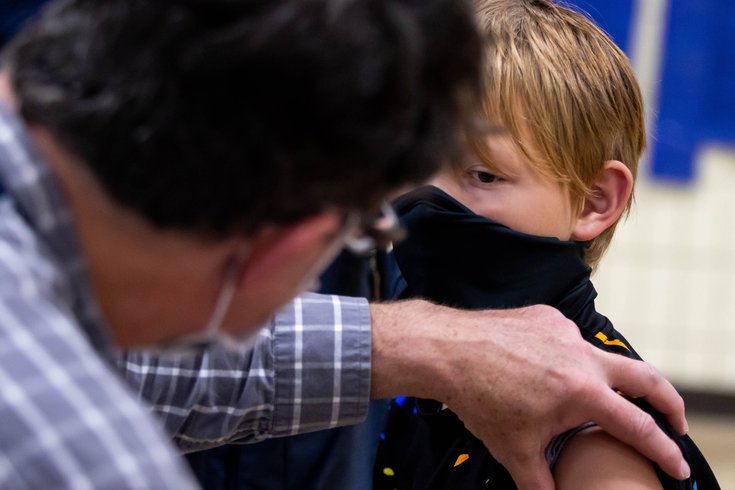
March 01, 2022
 Cody Scanlan/Holland Sentinel / USA TODAY NETWORK
Cody Scanlan/Holland Sentinel / USA TODAY NETWORK
The effectiveness of Pfizer's COVID-19 vaccine against infection dropped from 68% to 12% among children ages 5-11 during the omicron surge, research shows.
Pfizer's COVID-19 vaccine is far less effective at preventing infection among children ages 5-11 than it is for older children and adults, who receive higher doses, new data shows.
But the vaccine still offers strong protection against serious illness, researchers from the New York State Department of Health found.
The vaccine's effectiveness dropped from 68% to 12% among children ages 5-11 when the omicron variant became dominant in the United States, their study found. By contrast, the vaccine's effectiveness among children ages 12-17 only dropped from 66% to 51%.
The vaccine's effectiveness against hospitalization dropped from 100% to 48% among younger children and from 85% to 73% among older children.
Experts suspect the lower doses that the younger children received may have caused their protection to wane more significantly.
The younger children receive two doses of 10-milligrams while older children and adults receive two doses of 30 milligrams.
The study's findings suggest alternative vaccine dosing may be needed for children ages 5-11 and that other preventive measures, such as masks, are still important to prevent infection and transmission. With the omicron surge dissipating, the U.S. Centers for Disease Control and Prevention has eased masking guidelines in much of the country.
The study, which has yet to be peer-reviewed, analyzed data on more than 1.2 million fully vaccinated children ages 5-17 from Dec. 13 through Jan. 30 – the height of the omicron surge.
Pfizer's vaccine is the only coronavirus vaccine authorized for children of any age. Authorization for children ages 4 and younger was delayed earlier this year after data showed two doses offered little protection in children ages 2-4.